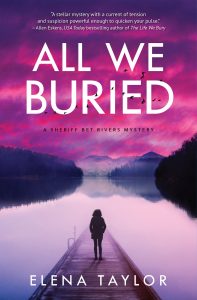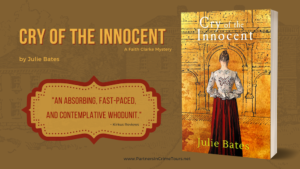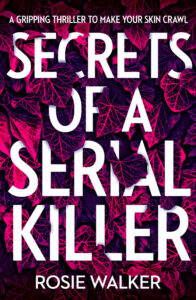Writing Faster . . .
Writing Faster
We live in a fast world. It has been speeding up for generations. Now we have movies and television instantly streaming to our devices and Zoom meetings that can put people together immediately no matter where they are in the physical world. We can get test results emailed to us even before we get home from the doctor’s office. We can finish graduate degrees without ever stepping foot in a classroom.
Some of these changes are great, increasing productivity, cutting down on travel, opening possibilities for people around the world.
And some of them are increasing our stress, anxiety, and feelings of inadequacy, and potentially setting us up for failure.
New writers are told they can write a book in a month . . . faster . . . faster . . . faster.
New writers are told they can write a book in a month . . . faster . . . faster . . . faster.
There’s nothing wrong with knocking out a draft in a short time, but I’d love to see that balanced with recommendations to slow down and rewrite better.
Writing a book is more than just finishing a first draft. That first draft is important, don’t get me wrong. I wholeheartedly embrace that writers should pound out that first draft, without worrying about making it flawless. In fact, I teach that all a first draft needs to be perfect is a beginning, middle, and end. There can be plot holes and faulty character development, there can be errors in story and facts that require research . . . that’s what rewriting is for, to fix all that.
But after that first draft is done, whether it was written in one month, one year, or ten years, the bulk of the writer’s work is likely still in front of them.
Writing faster rarely makes writing stronger
Rewriting takes time. Editing takes time. Letting drafts sit between rewrites takes time.
As a developmental editor, one of the biggest issues I see for writers is the speed with which they try to do things.
How fast people make changes to their manuscripts often signals to me how successful those rewrites will be. For a first time novelist, or someone working in a new style or genre, if I see they have finished a rewrite on a complete manuscript (longer than 70K) too quickly, I know, even before I look at it, that it’s not as strong as it could be. Not as strong as that writer could make it.
There’s nothing wrong with knocking out a draft in a short time, but I’d love to see that balanced with recommendations to slow down and rewrite better.
Problems with Rewriting Too Fast
These are a couple problems I see over and over when someone rewrites too fast:
- They make the changes in the old work, but continue to make the same mistakes in new material because they haven’t integrated the concept.
- They make all the changes that I suggested, just as I suggested them, rather than agreeing something needed work, but discovering the best change for their material on their own.
- They miss things.
What do I mean by these problems? The first is likely fairly self-explanatory, but let me give you an example. Show not tell.
Look at this sample:
George wanted to tell Jane he loved her. He’d loved her for such a long time, and it was eating at him not to tell her. “Jane,” George said. “I love you. I always have.”
That’s a lot of tell. I might recommend something like the following:
“Jane, there’s something you should know.”
Jane looked up from the magazine she’d been leafing through. She waited, expectant. As if she knew what he wanted to say.
“I love you.” There, he’d done it and it hadn’t killed him.
She smiled. “I wondered when you’d finally say it.”
If the writer makes those changes, then adds new material, which is primarily all tell, not show, I might have helped fix a few lines, but I have not made them a better writer.
With regards to the second problem, some of you might wonder why would it be a bad thing to just take everything an editor says and use it. Isn’t that what we get paid for? Not exactly.
Developmental editors want the writer to produce the best manuscript they can, not the best manuscript we can. An editor often knows where something doesn’t work, and even why it doesn’t work, but not necessarily the best way to fix it. We aren’t inside the writer’s head. We don’t know the characters and the story as it exists within the author. Our role is to tease their best work out.
Sometimes that means making a suggestion the writer doesn’t use, but does help them find the perfect fix.
As for the last point. I can’t tell you how often I’ve worked with a writer on multiple rewrites and given the same note multiple times, only to have the author fail to make the fix. Not because they disagree with a note, which is fine—writers can disagree with a note—but because they simply skipped over it by accident.
If we work too fast, we miss things. Even notes written on the page in bright red text.
So, my advice to writers, especially new writers, is take more time than you think. Slow down. Let your material breathe. Set a project down between drafts. Stop rushing to finish and rushing to publish. If you want to get an agent’s interest, and ultimately a publisher, you want to send out your best work. And that won’t be a first draft you banged out in a month. Take the time to polish your material.
We should probably all slow down. A few less Zoom meetings designed to cram an extra hour of work into an already full day.
Many of us want to rush out and do all the stuff we couldn’t for more than a year, but those events will happen.
Life is full of amazing things, some of which we will miss if we always do everything at a dead run.

Want more writing tips? Sign up for my newsletter!
Scroll to the bottom of this page, fill in your email under “Newsletter Sign Up” on the righthand side of the page, and click submit.
 Elena Taylor is the author of All We Buried, available now in print, e-book, and audio book format at all your favorite on-line retailers. And don’t forget many independent bookstores can order books for you and have them shipped to your home or for curbside pickup.
Elena Taylor is the author of All We Buried, available now in print, e-book, and audio book format at all your favorite on-line retailers. And don’t forget many independent bookstores can order books for you and have them shipped to your home or for curbside pickup.
Foreword INDIE Award Finalist, Best Mystery 2020. For more information on All We Buried, click on the link here to visit the home page.
Elena is also a Senior Editor at Allegory Editing. Interested in working with her on your manuscript? You can email her at [email protected]
Try and Stop Me by CJ on Pixabay





Excellent advice, Elena! I really enjoyed this post.
Thank you! I’m so glad it resonated with people.
Every novice writer should read this article! Many, including me, aren’t mentally prepared for what’s next after a first draft. Even the term “first draft” needs rethinking. It usually comes after many, many revisions, and yet, rewrites follow. It’s a long haul but it’s worth it. Thanks, Elena!
My pleasure! Thank you for reading 🙂
I think the push to “get it in front of agents before someone else nabs the idea and runs with it” feels real but nobody can write the story you are trying to tell, the way you’re trying to tell it. Even if it takes several, seven, or seventeen years. We get impatient — we hear the stories about authors writing something in a month and publishing it in a year — but is that their FIRST novel or FIFTIETH? What’s the saying: 10,000 hours of practice to master something? Those of us who haven’t put in the time yet… need to slow down and do it right. Thanks for the post, Elena.
This is all so true, we feel like we have to get things out or we have “failed” as writers. Slowing down is something I have to remind myself all the time too!